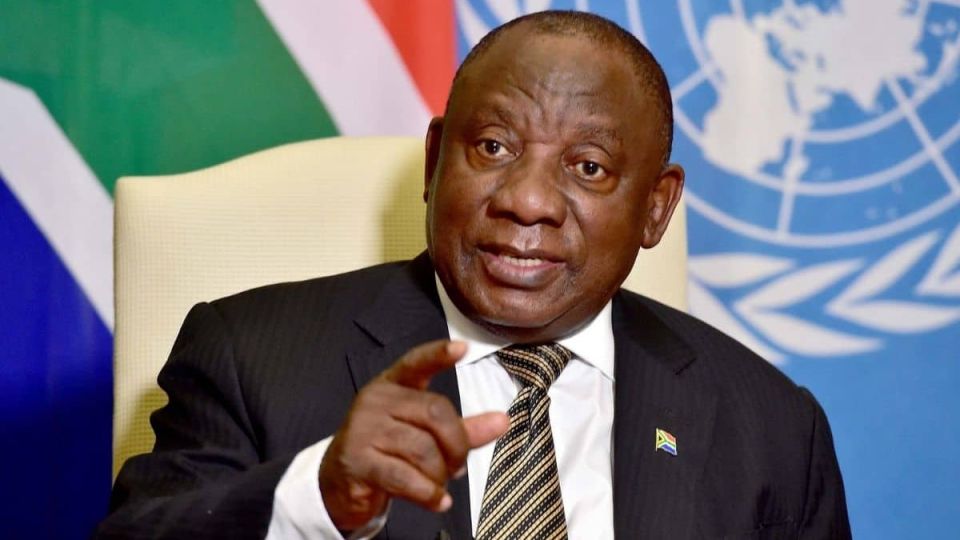by TINTSWALO BALOYI
JOHANNESBURG, (CAJ News) – THERE are mixed responses to the announcement of a cabinet to steer South Africa’s new coalition government.
It faces an grueling task resolving enormous challenges afflicting the besieged country, the latest being a divisive election outcome.
At last, there is a cabinet, after weeks of uncertainty following watershed polls.
Relief aside, concern persists after the government failed to reduce the size of the cabinet, as earlier pledged as part of cost-cutting measures.
After a marathon negotiation process among the ten parties involved in the coalition administration, President Cyril Ramaphisa announced his cabinet on Sunday night, featuring 32 ministers.
The previous cabinet had 30 ministers, and before the elections, the pledge was to trim the cabinet.
In addition to the increase in ministers, some 11 portfolios have two deputy ministers each. There are 42 deputy ministers.
Ramaphosa conceded that the fact his party, the African National Congress (ANC) failed to garner a majority during the May 29 polls, meant the party had to accommodate other parties in the formulation of the cabinet. Ten parties are in the alliance.
“In the course of the sixth democratic administration, we indicated our intention to reduce the number of portfolios in the National Executive,” he recalled.
“However, due to the need to ensure that the National Executive is inclusive of all the parties to the Government of National Unity, this has not been possible,” Ramaphosa said.
He was, typically, late (by an hour) for his televised addresses informally known as the “Family Meeting.”
It has been an arduous exercise naming the cabinet after the ANC lost its outright majority since independence in 1994. It attained slightly over 40 percent this year, in an election some parties claim was rigged.
Failure to trim the cabinet emanates from the separation of some portfolios.
There is a separate Ministry of Mineral and Petroleum Resources. The ministry of Agriculture is separated from the Land Reform and Rural Development.
Higher Education is separate from Science, Technology and Innovation.
Justice and Constitutional Development is separated from Correctional Services.
Opposition parties not part of the coalition condemned the cabinet as bloated.
Herman Mashaba, leader of the Action SA, said the new cabinet would cost taxpayers over R1 billion (US$55 million) annually in benefits and texts. Ministers and their deputies, he estimated, are to have R183 million of that money in salaries.
This at a time the incoming administration must hit the ground running addressing the economic malaise battering Africa’s most diversified economy.
“These staggering figures do not even account for the additional costs associated with luxury residences afforded to ministers and deputy ministers,” Mashaba decried.
The issue of downsizing the cabinet has been a campaign strategy by parties that sought to depose the ANC from power but now that they are in the coalition, they are mum about it.
The main opposition Democratic Alliance (DA) has secured six ministerial positions and an equal number of deputies.
Its leader, John Steenhuisen, is the new Minister of Agriculture.
“The DA is proud to rise to the challenge, and take our place, for the very first time, at the seat of national government where we can introduce our track record of governance excellence, zero tolerance for corruption, and pragmatic policymaking based on outcome and not intent,” Steenhuisen said.
Among the surprises was the reshuffle at the Department of International Relations and Cooperation (DIRCO), where ANC powerhouse, Naledi Pandoor, has been replaced by fellow party member Ronald Lamola, formerly Minister of Justice and Correctional Services.
This is a key portfolio because of South Africa’s involvement in the geopolitical crisis, and Pandoor expertly played a balancing act amid the Russia-Ukraine war and the Hamas-Palestine conflict.
Senzo Mchunu (ANC) has replaced fellow party colleague, Bheki Cele, as Minister of Police, tasked with driving the crackdown against rampant crime in one of the most violent societies in the world.
Home Affairs is another emotive portfolio amid the illegal immigration scourge.
After a tussle with human rights groups on immigration, Aaron Motsoaledi (ANC) vacates that ministry and is back in Health, where is qualified.
He paves way for the DA’s Leon Amos Schreiber.
The ANC has welcomed the cabinet announcement.
“The formation of the Government of National Unity based on the Statement of Intent is a reflection that all of us must work together to heal the divisions of the past and establish a society based on democratic values, social justice and fundamental human rights,” ANC stated.
The previous administration was hampered by the impact of COVID-19, corruption and infighting among the ANC. Intermittent floods have also hit the vulnerable communities.
– CAJ News

